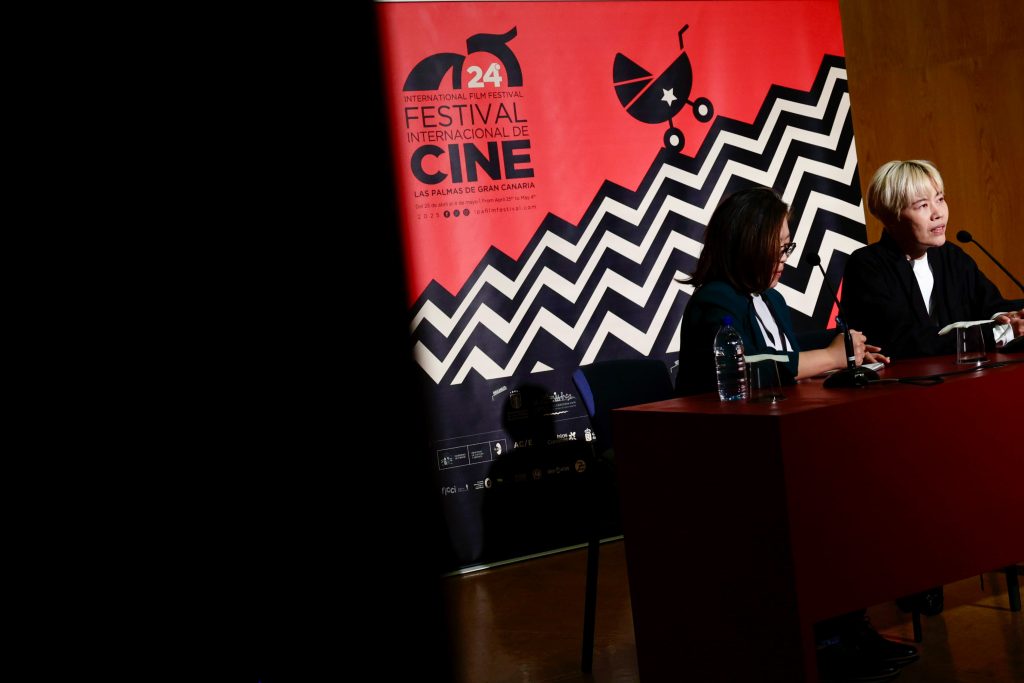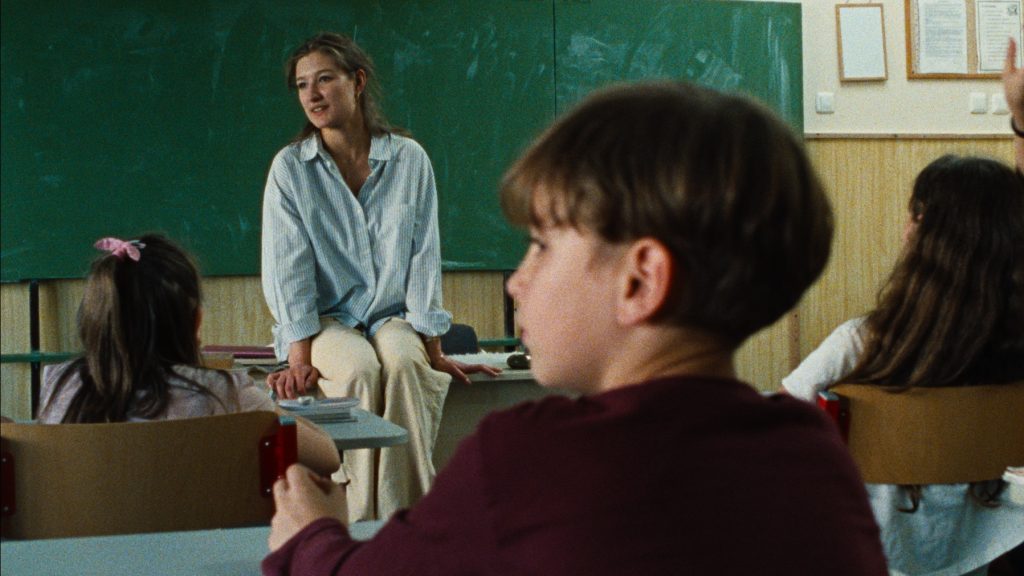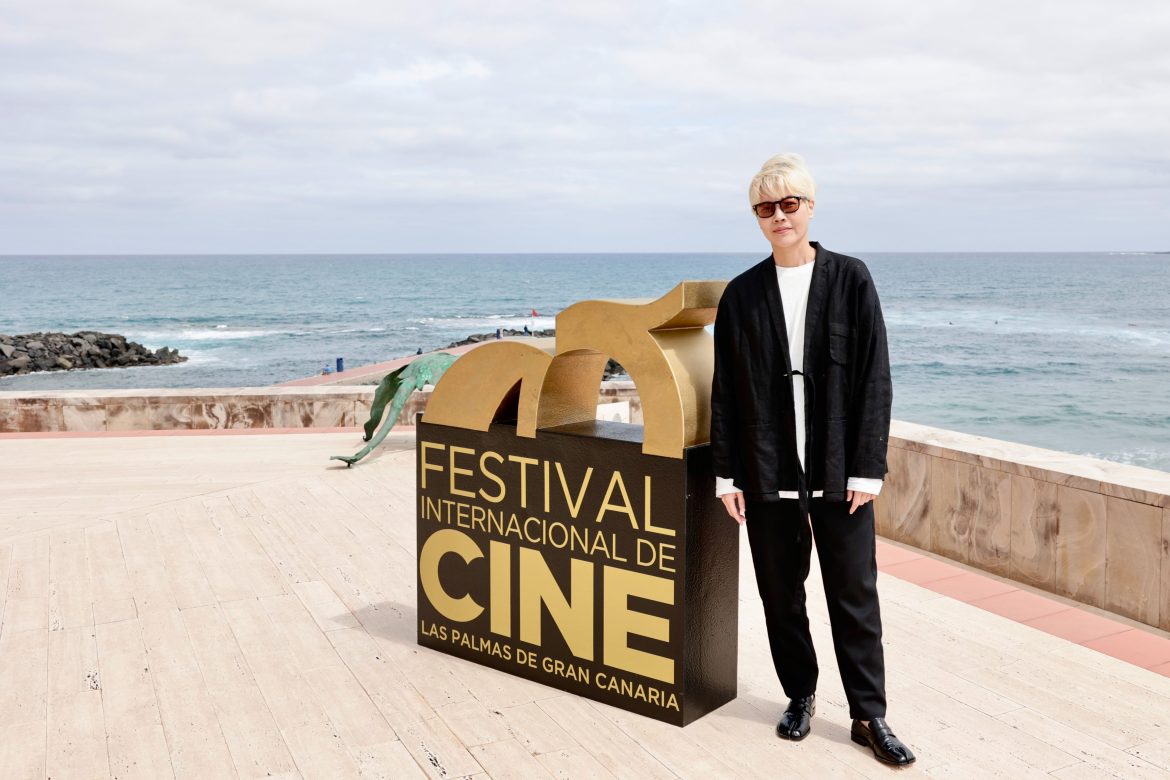- Blind Love delves into the reality of the LGTBI community in Taiwan, where the film has premiered shortly after the approval of gay marriage in the country
- The Asian filmmaker displays her visual sensitivity in a piece fluctuating from darkness to clarity in a rigid on-screen frame

04/28/2025 LAS PALMAS DE GRAN CANARIA. LAS PALMAS DE GRAN CANARIA INTERNATIONAL FILM FESTIVAL. JULIAN CHOU
Las Palmas de Gran Canaria, Monday, April 28, 2025.- Julian Chou tells in Blind Love (Shi ming) (2025, Taiwan, 145 min.) a story about politically incorrect cross attractions in a conflicting family context. The Taiwanese filmmaker offers the audience an uncomfortable experience, though empathetic with its protagonists, in this first screening of the 24th Las Palmas de Gran Canaria International Film Festival’s Official Section.
Chou appeared before the media as a brave and sensitive filmmaker with her vocation clearly defined: “I wanted to show the audience what it really means to be pluralistic. This world is a melting pot in which we must learn to accept the different communities we live with,” she claimed in front of the cameras and microphones.
Chou purchased the rights to the award-winning short novel Blindness, by writer Essay Liu (“she’s a very good friend of mine,” she revealed), to embark herself on a complex production process that ended up starting with only half of its financing secured. That is, the part provided by the Taiwanese government. The filmmaker was even determined to mortgage her house if it was necessary to finish the film, although she did not stop looking for financial resources throughout the whole shooting process. In addition to money, making her Blind Love took her three and a half years of work.
This contemporary and universal drama is nonetheless particularly relevant in Taiwan, where gay marriage was approved not that long ago, in 2024. “No, this subject wasn’t appealing to investors, especially if we’re talking about a relationship between women,” the filmmaker said prior to pointing out that the vote to legalize gay marriage in her country “was won with slightly more than half the population. Which means that practically the other half disagreed.”
In the middle of the debate, Chou decided to go for a story that has “great intensity” to depict “the circumstances the LTGBI community is going through, because I have a lot of friends who are there. I think that, with my work, we can show this reality to the world.”
The director also noted the timeliness of highlighting one the characters’ blindness as something truly relevant to the film, “because there is a large part of society who chose not to see things clearly.” Although she also “wanted to show how a lot of times we are blind to our feelings, even if our eyes work perfectly fine. When we are blind,” she continued, “we have to awaken other senses, and maybe we are more sensitive then.”
According to Chou, in the 21st century “society is still conservative.” That’s why, in the film, “I created a transition from the darkest scenes towards clarity. I wanted to convey the awakening process of all the characters.”
Both the carefully-chosen costume design, “meant to emphasize the differences between classes,” and the photography acquired a key dimension in her approach as a filmmaker. In this regard, Chou pointed out that “we meant to capture the oppressive feeling the characters have in the movie, their angst, that’s why we resorted to lines that delimit it, more rigid forms, with a still camera. I wanted the audience to have the sensation of perceiving a gridded environment.”
Blind Love arrives in the Gran-Canarian capital after having obtained the Best Feature Film Award at the Joburg Film Festival, in South Africa, last month. The film was also nominated to the Tiger Award at the Rotterdam Festival.
Lesson Learned, second feature competing in the Official Section

The second feature competing in the section is the Hungarian film Lesson Learned (Fekete pont) (2024, 119 min.), by Bálint Szimler. This work about alienation, which has already received a Special Mention at the 2024 Locarno’s Filmmakers of the Present section, tells the story of a teenager who is trying to adapt to his new school, while, in parallel, a teacher comes up against an educational system anchored in the past.
Both feature films, screening a second time on Monday evening, will be shown again tomorrow, April 29, at Cine Yelmo Las Arenas.
Partners, sponsors and collaborators of the 24 FICLPGC
The Las Palmas de Gran Canaria International Film Festival, organized by the Culture area of the Gran-Canarian capital’s City Council through Promoción de la Ciudad de Las Palmas de Gran Canaria, has received public assistance by the ICAA [Institute of Cinematography and Audiovisual Arts], the Visitors’ Program for the Internationalization of Spanish Culture (PICE), of the Spanish Public Agency for Cultural Action (AC/E), as well as public support from Promotur Turismo Islas Canarias.
Among the Festival’s collaborators we may find Fundación Auditorio Teatro, Cines Yelmo, Las Arenas Shopping Center and Hotel Cristina by Tigotan, places which also function as venues or hold activities of the film event; as well as other institutions and companies such as Sagulpa, Toyota, Royal Bliss, Fuze Tea, Coca Cola, Sholeo Lodge, Audiovisuales Canarias, Music Library &SFX, Blackout Films and International Bach Festival. Likewise, its market, MECAS, has been possible thanks to the sponsorship of the Gran Canaria Film Commission-Sociedad de Promoción Económica de Gran Canaria and the support of Proexca.
The University of Las Palmas de Gran Canaria, the Mid Atlantic University, Digital 104, the Audiovisual Cluster of the Canary Islands, the Association of Women Filmmakers and Audiovisual Media CIMA, the Cartagena International Film Festival, the Gijón International Film Festival, the Barcelona Independent Film Festival, the Tres Puertos Laboratory, Barcelona’s ESCAC, and Very Good Script, Freak World and Fimucité are also collaborators.
Share this Post

